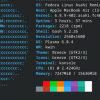Who's The Fastest Growing Linux Distro?
Which Linux distribution is the most popular? For many players in the open source realm, that answer depends on which part of the globe is counting, and how.
It could also depend on where the major Linux distributors stand with their product release cycles with the latest 2.6 Linux kernel (define).
By most accounts and research metrics, Red Hat (Quote, Chart) is the current market leader in distributions. IDC, for example, estimates that Red Hat's distributions cover over 60 percent of the Linux server market.
But according to one metric by Internet research company Netcraft's January survey, when measured by counting active sites that contain the name of a Linux distribution in the header of the open source Apache Server, the Debian version of Linux is showing the fastest growth in the past six months.
From July 2003 through January 2004, Debian's 24.6 percent growth to 442,753 installations represented the fastest growth in that period, Netcraft said.
RedHat has a far greater number of installations at 1.5 million, but a slower growth rate in the six-month span at 17.8 percent; the research firm also said the company's distribution numbers fell after Red Hat made changes to its licensing and security update policy. (The change included a subscription-based revenue model.)
In percentage terms, Debian was closely followed by Germany's SuSE Linux with 23 percent growth to 296,217 installations in the six month period, followed by Gentoo's 19.5 percent growth to 24,229 installations.
Each distributor, however, interprets the numbers differently, and each cites unique sweet spots for growth, according to interviews with major Linux distributors conducted by internetnews.com .
Red Hat's spokesperson Leigh Day called the Unix operating system (define) the company's main competition. "We're still seeing lots of Unix replacements," she said. "We're seeing demand for Linux in other areas of critical infrastructure. For instance we'll be attacking the middleware layer next with our application server," Day told internetnews.com.









































































